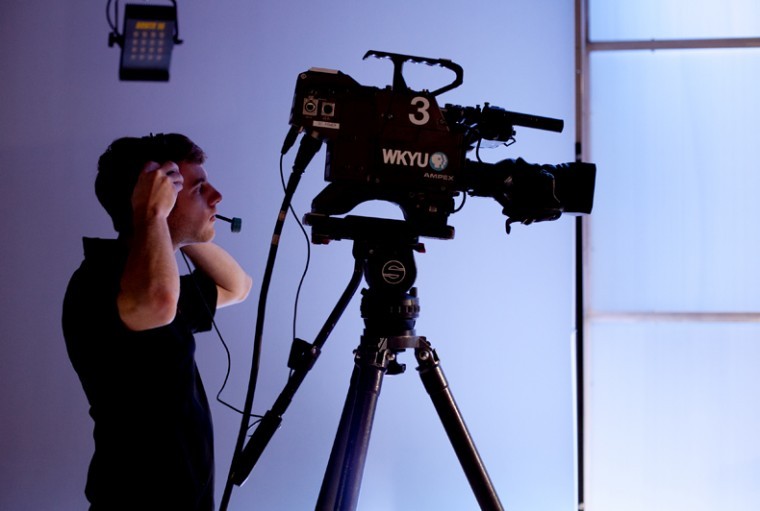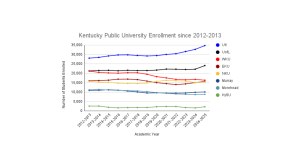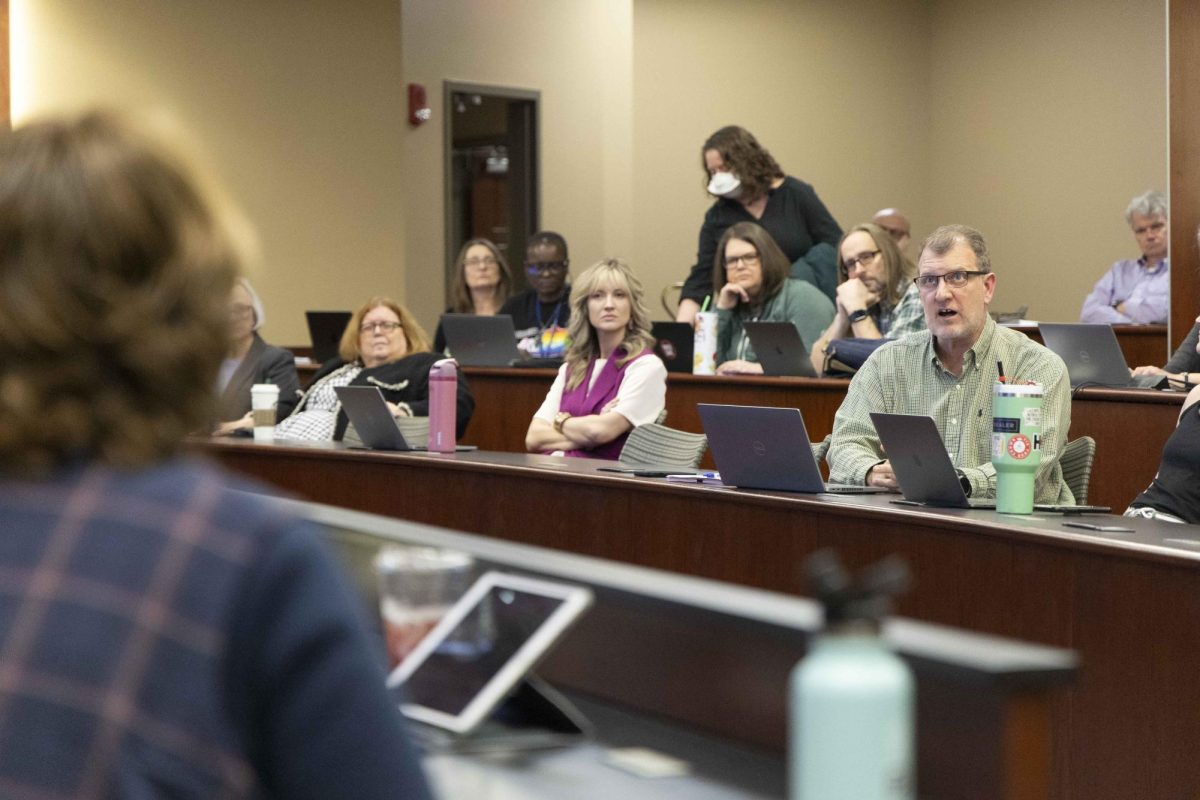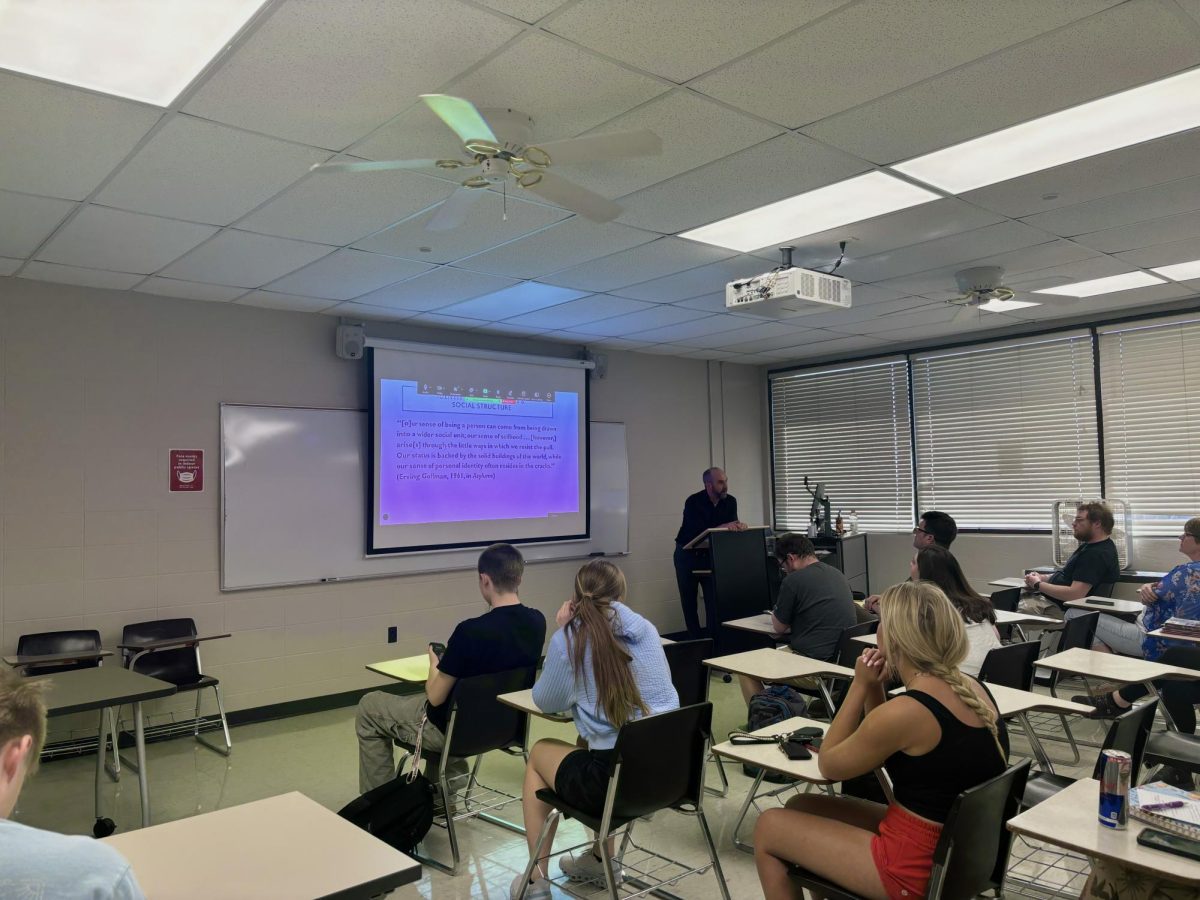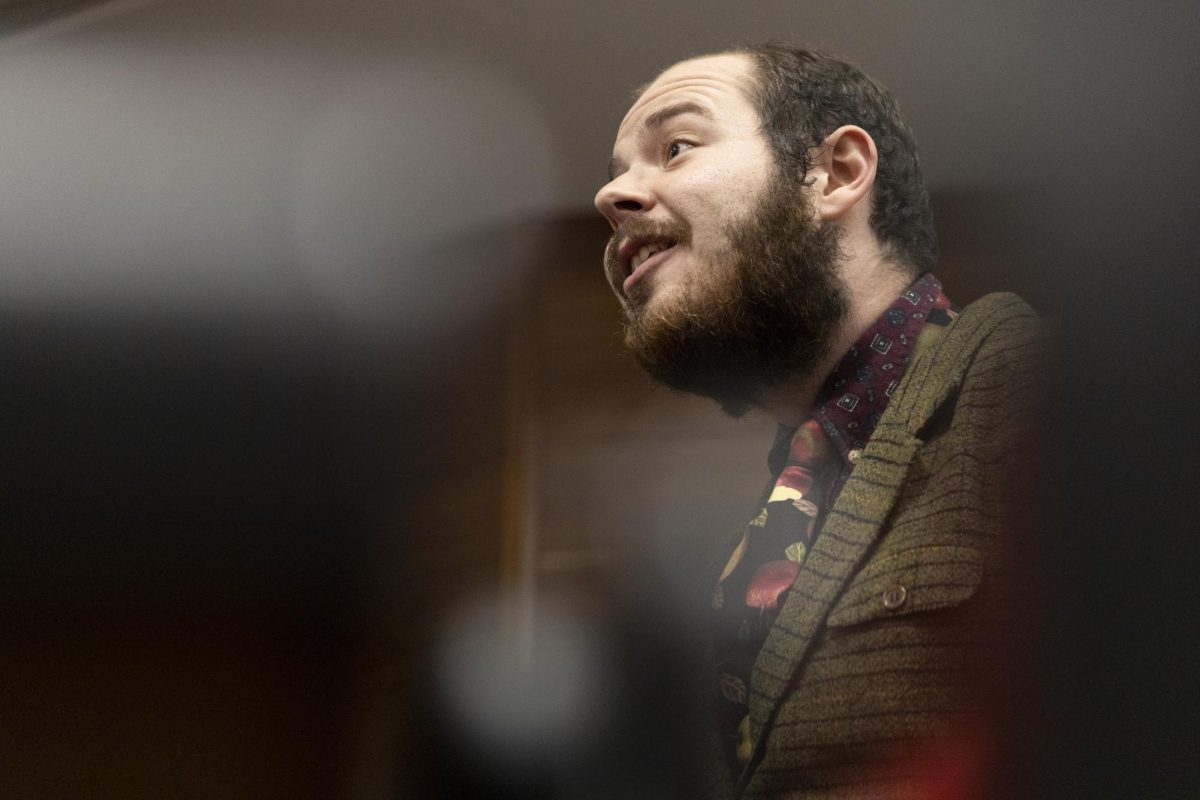Students worried about potential public broadcasting cuts
February 25, 2011
Lexington senior Tabnie Dozier is nervous about losing her job.
Dozier is doing an internship with WKYU-PBS. Her job, along with other students working for public broadcasting outlets, may hinge on a bill facing the U.S. Senate next week.
The bill proposes to eliminate funding for public broadcasting, including WKYU, a PBS station based in Bowling Green and owned by WKU. It has already passed in the House of Representatives, so the bill is now facing consideration by the Senate.
“Because we aren’t a commercial station, we already don’t have the amount of income that other stations have,” Dozier said. “The idea of taking more money away frightens me.”
Jack Hanes, director of Educational Telecommunications, which is the department responsible for the operation of WKU’s public radio and television stations, as well as the Hilltopper Sports Satellite Network, said the Senate will most likely restore the funding, which will lead to a compromise between the House and the Senate.
Hanes said the Corporation for Public Broadcasting, a non-profit organization created by Congress and funded by the federal government, currently provides $430 million dollars a year to outlets across the country. WKU’s public media receives $900,000 a year, which amounts to 40 percent of its budget.
“All we know right now is that our funding will be somewhere between $900,000 and nothing,” Hanes said. “If funding is eliminated, we would have to make significant cuts. It’s unknown if we could continue to exist.”
Dozier is the associate producer for Outlook, a public affairs talk show on WKYU. She said her responsibilities include getting in contact with guests, researching the topics they discuss, and escorting the guests while they are at the station.
Because she has only worked there two months, Dozier said she is worried that she would be one of the first to be let go.
Associate broadcasting professor Jo-Anne Ryan said there are usually between 20 and 30 students working or doing internships at WKYU. She said if the funding is cut, they might not be able to hire as many students.
“If they lose 40 percent of their budget, obviously they have to cut somewhere,” Ryan said.
The students who work and intern there get valuable mentoring by the professionals and experience with state-of-the-art equipment, she said.
“The students who graduate after working there for a couple years really do well,” Ryan said. “They’re pretty much in demand.”
Louisville sophomore Cece Peck, also a student worker at WKYU, works mostly at a computer scheduling station promotion breaks.
The passing of the bill wouldn’t directly affect WKYU for 18 months, Hanes said, because public broadcasting is funded two years in advance. But Peck said they still need to be prepared.
“If the bill passes, we’ll need to have some business game plan, or we won’t have jobs,” she said.
Dozier said the loss of public broadcasting would not only affect its employees, but larger communities as well.
“Public broadcasting is such a good balance in today’s media,” she said. “It’s just positive television. It’s education, unbiased and just a very clean broadcast.”
Dozier said public broadcasting is very beneficial to WKU especially, and that if funding is removed or reduced, there will be a domino effect of negativity.
Peck and Hanes said they have been taking action to try and save public broadcasting. Both have been sending letters to the U.S. Senate urging them not to cut funding for public broadcasting.
“Public broadcasting is a very valuable service,” Hanes said. “I would hate to see it eliminated.”



